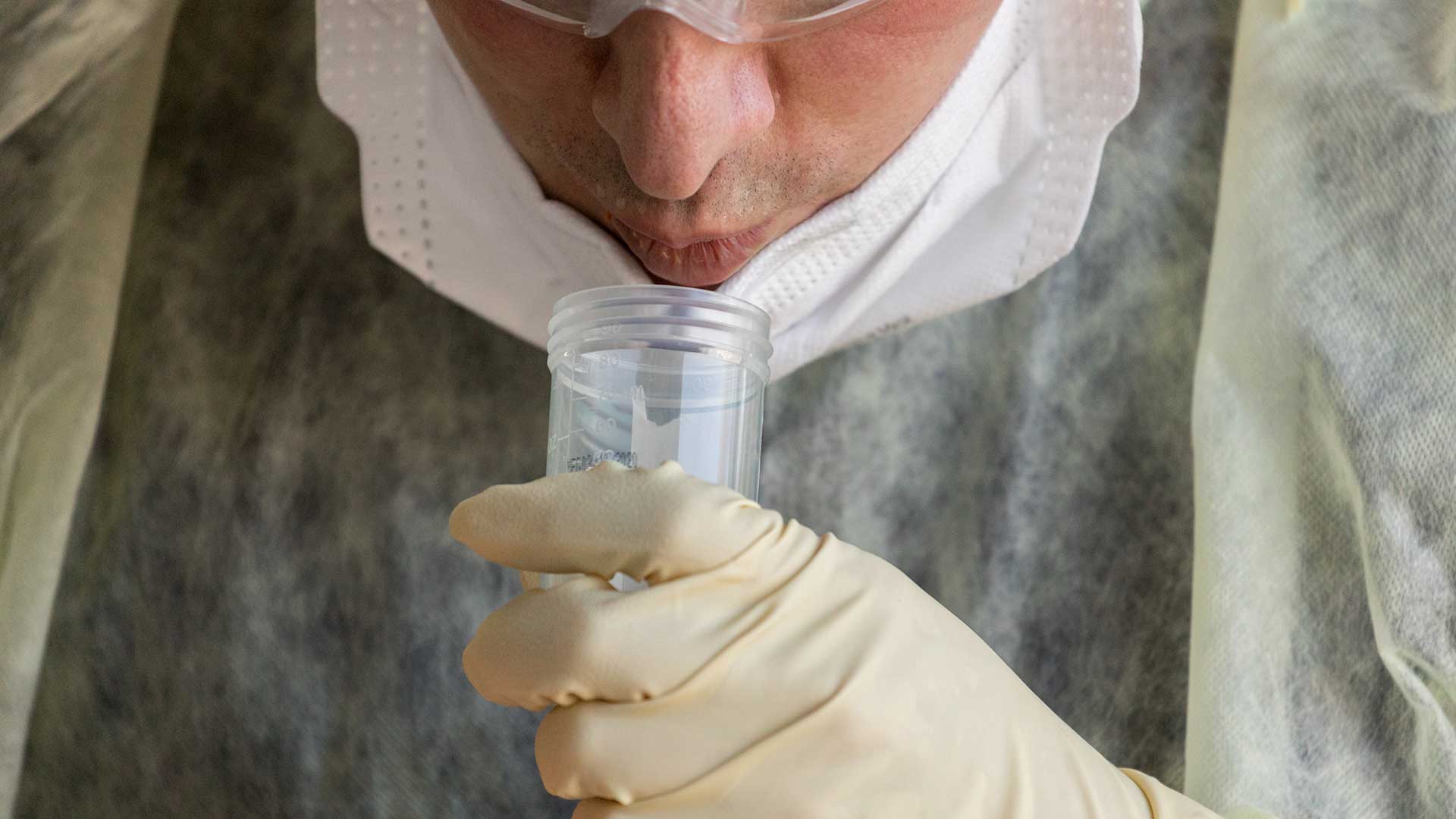 An epidemiologist says a new method of COVID-19 sampling uses salt water to collect material from the back of the throat, the same place where a nasal swab would capture cells.
An epidemiologist says a new method of COVID-19 sampling uses salt water to collect material from the back of the throat, the same place where a nasal swab would capture cells.
You may soon be able to tell if you have COVID-19 by gargling salt water like mouthwash.
University of Arizona epidemiologist Michael Worobey is studying a new kind of sampling in which the specimen comes from a mouth rinse that is gargled and spit into a cup for analysis. He says the method collects material from the back of the throat, the same place where a nasal swab would capture cells.
“I thought you really had to go through all the pain and discomfort of a swab deep inside your head to really get at this virus," said Worobey. "It turns out you can get at it in a much easier and more painless way.”
Worobey tested the sampling on UA students and found that it was more sensitive than a test based on saliva samples alone.
He says the saltwater gargle method works especially well in Arizona because the dry climate makes it difficult for some people to produce the necessary amount of saliva needed for a spit test.

By submitting your comments, you hereby give AZPM the right to post your comments and potentially use them in any other form of media operated by this institution.